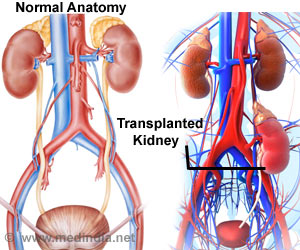AI models predict diarrheal outbreaks, enabling early intervention.

Climate change-fueled extreme weather, like devastating floods and prolonged droughts, frequently triggers outbreaks of diarrheal diseases, especially in less developed countries where these diseases are a leading cause of child mortality. Artificial intelligence helps forecast deadly outbreaks, providing public health systems with crucial lead time to prepare and save lives. (1✔ ✔Trusted Source
A prototype early warning system for diarrhoeal disease to combat health threats of climate change in the Asia-Pacific region
)
Adapting to Climate Change
“Increases in extreme weather events related to climate change will only continue in the foreseeable future. We must adapt as a society,” said Sapkota, who is chair of the SPH Department of Epidemiology and Biostatistics. “The early warning systems outlined in this research are a step in that direction to enhance community resilience to the health threats posed by climate change.”
The multidisciplinary team, working across several institutions, relied on temperature, precipitation, previous disease rates, El Niño climate patterns as well as other geographic and environmental factors in three countries – Nepal, Taiwan, and Vietnam – between 2000 and 2019. Using this data, the researchers trained AI-based models that can predict area-level disease burden with weeks to months ahead of time.
“Knowing expected disease burden weeks to months ahead of time provides public health practitioners crucial time to prepare. This way they are better prepared to respond, when the time comes” Sapkota said.
While the study focused on Nepal, Vietnam, and Taiwan, “our findings are quite applicable to other parts of the world as well, particularly areas where communities lack access to municipal drinking water and functioning sanitation systems,” said lead author of the study Raul Curz-Cano, Associate Professor at Indiana University School of Public Health in Bloomington.
Sapkota says AI’s ability to work with huge data sets means that this study is an early step among many he anticipates will result in increasingly accurate predictive models for early warning systems. He hopes this will allow public health systems to prepare communities to protect themselves from a heightened risk of diarrheal outbreaks.
The team responsible for the research came from a wide variety of fields, including atmospheric and oceanic science, community health research, water resources engineering and beyond. The research team was comprised of authors from UMD – including its Department of Epidemiology and Biostatistics and Department of Atmospheric and Oceanic Science – and from Indiana University School of Public Health in Bloomington, the Nepal Health Research Council, the Hue University of Medicine and Pharmacy in Vietnam, Lund University in Sweden, and Chung Yuan Christian University in Taiwan.
Advertisement
Reference:
- A prototype early warning system for diarrhoeal disease to combat health threats of climate change in the Asia-Pacific region – (https://iopscience.iop.org/article/10.1088/1748-9326/ad8366)
Source-Eurekalert



